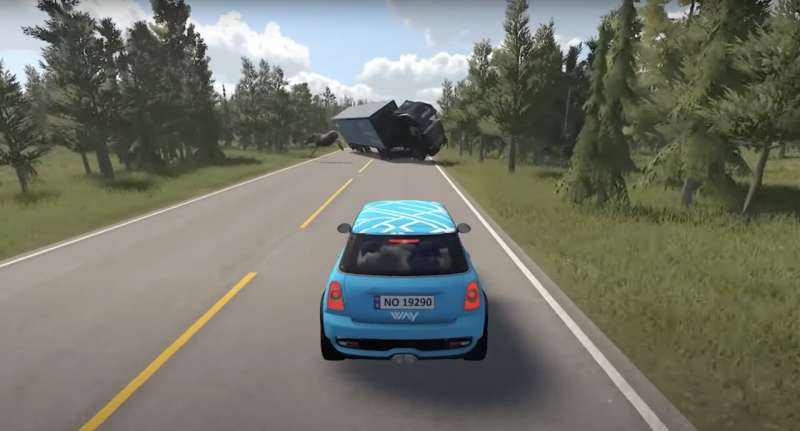
Artificial intelligence can completely transform current driver training. This is also the aim of a collaboration between NTNU, the IT company Virtur, and WAY AS in Trondheim, which is Norway's only simulator-based driving school.
The project has developed a system and an AI driving instructor that can teach learner drivers how to drive in a full-scale car simulator.
Neutral instructor, personal training
A virtual driving instructor is fully capable of immediately assessing the performance of the learner driver behind the wheel. It can also provide completely neutral feedback in real time.
This helps eliminate or reduce any personal biases towards the learner that might influence feedback given by a real instructor in a one-on-one situation.
"AI driving instructors are on par with human driving instructors when it comes to systematically evaluating learner drivers," says Odd Erik Gundersen, associate professor at NTNU's Department of Computer Science.
Nearly 1.2 million people die in road traffic accidents every year, according to the World Health Organization. This is the most common cause of death for children and young people between the ages of 5 and 29. The youngest drivers are most at risk and men are three times more likely than women to be killed in road traffic accidents.
Even small improvements can save many lives. While the UN aims to halve the number of road traffic deaths by 2030, the EU wants the number to be as close as possible to zero by 2050.
In Norway, 118 people died in road traffic accidents in 2023. This trend over the past two years has gone in the wrong direction, so Norwegian authorities are also intensifying their efforts to improve traffic safety.
477 training scenarios
The NTNU researchers believe that one opportunity for improvement is better driving instruction. The system they have developed is based on a total of 477 driving scenarios involving three different traffic situations—overtaking maneuvers, city driving involving major traffic light junctions, and roundabouts and various give way situations.
The goal has been for the system, i.e., the virtual instructor, to be trained to accurately and objectively assess various driving scenarios. At the same time, it should possess skills and provide feedback that are as good and precise as real driver training experts.
To train and test the virtual instructor in relation to real-world driver training, a total of 21 learner drivers and seven instructors participated in simulator sessions.
Machine and human—equally precise
According to the report, published in Expert Systems with Applications, "The results show that the assessments and feedback from the AI instructor align very well with those of the real experts in these situations. This confirms that the system can perform as precisely as human experts."
In recent years, interest in driver training in simulators with virtual instructors has grown in line with increasingly better technology and cheaper hardware.
However, despite the many advantages, relatively little research has so far been conducted on AI-based driver training. Much of the attention in the field is instead directed towards the development of self-driving cars.
Odd Erik Gundersen hopes that their research can help advance the development of virtual driver training.
"When training in a simulator, it is easier to standardize and personalize driver learning. At the same time, the simulator can ensure that all drivers are exposed to and can handle different situations. In addition, unusual and dangerous situations which cannot be tested in the real world can be practiced in a simulator," says Gundersen.
More information: Johannes Rehm et al, A virtual driving instructor that assesses driving performance on par with human experts, Expert Systems with Applications (2024). DOI: 10.1016/j.eswa.2024.123355
Citation: A digital driving instructor is just as good as a real one, researchers say (2024, August 20) retrieved 20 August 2024 from https://techxplore.com/news/2024-08-digital-instructor-good-real.html
This document is subject to copyright. Apart from any fair dealing for the purpose of private study or research, no part may be reproduced without the written permission. The content is provided for information purposes only.
